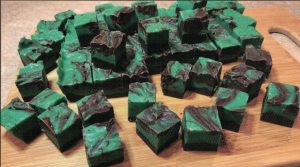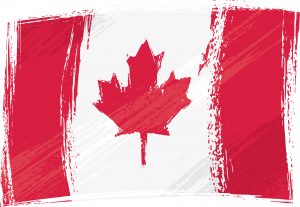We’ve all heard the “myths” before. They were drilled into us as children and into adulthood. But are any of these so-called myths even true? Can science finally disprove them? You bet. Let’s take a look at the top 10 cannabis myths.
MYTH: It has no medicinal value.
FACT: You may have seen the video of Larry, the Parkinson’s patient who tries cannabis for the first time and his tremors cease within minutes of consumption. Countless videos have surfaced on social media, in news reports, and on the internet about young children who had been suffering from numerous seizures a day only to have them stopped or lessened by cannabis treatment. So what does that say about the medicinal value of cannabis?
Since cannabis is still considered a Schedule 1 drug by the Drug Enforcement Agency, scientific research and studies have been very limited. However, according to the New England Journal of Medicine, 76% of medical doctors would prescribe (recommend) cannabis to a 68-year-old woman with deteriorating cancer, thus showing that there is indeed medicinal value.
MYTH: It’s a gateway drug.
FACT: For years people believed that cannabis may be a gateway to harder and more harmful drugs. We have since learned that not only is this statement not true, but cannabis is assisting many people in addiction recovery. In fact, even Dr. Oz has stated that cannabis can be used as an “exit drug” and most opiate addicts prefer cannabis to deadly opioids. In states such as Colorado, opiate deaths are down by a remarkable 25 percent. As a sidenote, a University of Florida study has also shown that alcohol is, in fact, the gateway drug since it is so ubiquitous, easily accessible, and socially acceptable.
MYTH: If it’s good for me, my doctor would prescribe it.
FACT: Unfortunately cannabis works a little differently than other medicines. Doctors cannot “prescribe” it. It has to be “recommended” by a physician who is qualified to specifically recommend medical cannabis. In order to provide certifications to patients, a doctor must have an active, unrestricted medical license and must complete a two-hour course from the Florida Medical Association. It should also be noted that many traditional doctors were never educated on the benefits of medical cannabis. Medical programs are just now beginning to cover the topic of cannabis as medicine.
MYTH: How could you let your child smoke a joint?
FACT: Many people have the misconception that medical cannabis can only be smoked. However, there are many ways to consume cannabis including inhalers, topicals, edibles, oils/tinctures, and even suppositories and tampons. When a child is given medical cannabis to treat a condition, most times it is in pill, inhaler, or oil/tincture form.
MYTH: People who use cannabis are lazy.
FACT: We beg to differ! The couch-locked, red-eyed, lazy stoner stereotype has been plaguing cannabis consumers for years. Can motivation be affected by cannabis? Yes, but it also can be affected by eating a large meal. First it’s important to understand that there are three types of cannabis: indica, sativa, and hybrid. Indica strains are known for being physically sedating while sativas typically provide more invigorating, uplifting cerebral effects that work well with physical activity, social gatherings, and creativity. Hybrids tend to fall somewhere in between and take on the traits of their parents. Knowing which strains you are consuming allows you to control your motivation. Essentially it boils down to one thing: just like anything else, you need to control your medication and not let your medication control you.
MYTH: You’ll get addicted.
FACT: When discussing addiction, it’s important to distinguish between physical addiction and psychological addiction. Substances like alcohol, heroin, nicotine, cocaine, and methamphetamine can cause physical dependence, but cannabis dependence is mostly psychological, if there is any dependence at all.
MYTH: Having a dispensary in an area will draw crime.
FACT: This is a common misconception. Contrary to some beliefs, people don’t just “hang around” outside a dispensary, and dispensaries do not increase crime rates within a specified area. In fact, dispensaries deter neighborhood crime due to their state-of-the-art security systems and security personnel. In 2010 over 600 dispensaries were forced to close in Los Angeles. Most people thought that the crime rate would go down, but it was exactly the opposite. Small crimes actually decrease when more retail shops are available in an area. Florida is no different. Curaleaf, a dispensary in the Miami area, stated that their business neighbors love having them there… they feel safer with the dispensary’s around-the-clock security guards and surveillance systems in place.
MYTH: It kills brain cells.
FACT: This belief dates back to the anti-drug campaigns in the 70s and 80s, which spread that cannabis could permanently damage the brain. Now, doctors and health professionals know this is simply not true. A recent study from the University of Louisville, and corroborated by Cambridge University, proves that cannabis does not cause a person to lose brain cells. In fact, another study indicated that cannabinoids are, in fact, neuroprotective, serving to protect nerve cells against damage, degeneration, or impairment of function. Researchers at Salk Institute labs in San Diego discovered that tetrahydrocannabinol (THC) and a few other active compounds remove amyloid beta proteins from neurons. Amyloid is the toxic protein known to accumulate in the brains of Alzheimer’s patients.
MYTH: Cannabis can kill you.
FACT: There is an old joke that the only way cannabis can kill you is if a bale of it were to fall on top of you, essentially crushing you. We all laugh, but this is actually more true than one would think. According to the National Cancer Institute, you cannot die of a cannabis overdose “because cannabinoid receptors, unlike opioid receptors, are not located in the brainstem areas controlling respiration. Lethal overdoses from cannabis and cannabinoids do not occur.”
MYTH: “Good people don’t smoke weed.”
FACT: We’re sorry Mr. Jeff Sessions, but you are wrong. A Washington Post survey concluded, “More than half of American adults have tried marijuana at least once in their lives. Nearly 55 million of them, or 22 percent, currently use it – defining ‘current use’ as having used marijuana at least once or twice in the past year. Close to 35 million are what the survey calls ‘regular users,’ or people who use marijuana at least once or twice a month.” Are there really that many people in our country who are “not good?” These people who are veterans, school teachers, politicians, actors, lawyers, athletes, business professionals, healthcare workers, and countless other walks of life? Judging a person on their choice of medicine and labeling them as “not good” is simply unconscionable.





